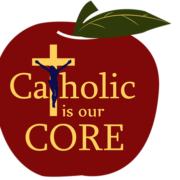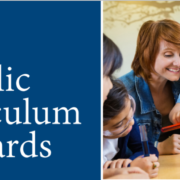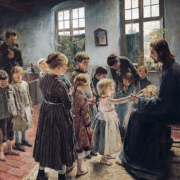Resources for Implementing the Standards
Guidance for Implementing the Catholic Curriculum Standards
Webinar with Fr. John Belmonte, Jill Annable, and Mike Juhas on “Guidance for Implementing the Catholic Curriculum Standards”
Blog Posts
The Transcendental Taxonomy and Catholic Education Jan 2, 2018, Rubicon – more information on using philosophical questioning in all disciplines
Teaching and Assessing Dispositions In Catholic Curriculum Dec 27, 2017, Rubicon
Understanding and Implementing Catholic Curriculum Standards July 5, 2017, Rubicon
History and Implementation of Catholic Curriculum Standards
Webinar with Rubicon International and Diocese of Lansing, MI
Key Insights into the Catholic Curriculum Standards
Webinar with Rubicon International – This webinar discusses the underlying philosophy and use of the transcendentals of truth, beauty, and goodness embedded within the Catholic Curriculum Standards and shows how the transcendentals can serve as interdisciplinary threads between content areas and academic disciplines. Assessment of these concepts is discussed. (Must register first.)
Examples of integrating the Catholic Curriculum Standards
Diocese of Venice – Video of Most Rev. Bishop Frank DeWayne explaining new updated K12 standards which include the Catholic Curriculum Standards
Diocese of Joliet – K-8 Standards using English Language Arts, Science, Mathematics, and Social Science
Diocese of Owensboro – K-12 Science Standards using Catholic Catholic Standards and Resource material
Diocese of Grand Rapids – Adapted the Catholic Curriculum Standards to their ELA, Mathematics, Science, and Social Studies standards
Policy Resources
Literature, Library, and Media Guide
Holistic Rubric for Selecting Literature in a Catholic School
Selected Reading List for K-12 Schools
Sample Lesson/Unit Plans*
Taxonomy of Education Objectives – Affective Domain
*These can be adapted to individual lesson plan templates.
Teacher Formation Readings
Below are a series of readings that teachers might undertake to develop a deeper and richer understanding of the philosophical approach embedded within the Catholic Curriculum Standards. They are listed in order with the most general article describing the benefits of the integration of philosophy within the educational program (1) moving next to a brief explanation of the five Transcendentals: Perfect and unconditional Truth, Love, Goodness (Justice), Beauty, and Being (Home) (2), a brief history of western philosophical teaching on the transcendentals by Augustine and Aquinas (3) and a call of how these transcendentals lead us to Jesus, as God, and the Word (4). Adler provides the philosophical framework for understanding truth and beauty (5), and then finally Saint John Paul II’s Fides et Ratio (6) expounds on objective truth and reality.
At some point within a Catholic school teacher’s career, a wide-spread and thorough reading of the Church documents on education can be undertaken (7).
- Kreeft, P. (Jan. 2015). “It’s About Navigating Life: The Importance of Philosophy & Theology.”
- Spitzer, R. (2011). “Appendix: Evidence of the transmateriality of human beings” in Ten Universal Principles: A Brief Philosophy of the Life Issues. Pgs. 123 – 139.
- Turley, S. (2014). Awakening Wonder: A Classical Guide to Truth, Goodness, and Beauty. Camp Hill, PA: Classical Academic Press. Chapter 4. Overview of western philosophical teachings on the transcendentals.
- Caldecott, S. (2012). Beauty in the Word. Tacoma, WA: Angelico Press. Pgs. 133-136 and 153 – 160.
- Adler, M. (2000). The Great Ideas. Peru, IL: Open Court Publishing. Pgs. 1 – 10 on Truth and Pgs. 153 – 162 on Beauty.
- John Paul II, (1998). Fides et Ratio, #28 – 93.
- Church Documents for School Teachers: Annotated Bibliography
Purchase a course pack with all the readings along with a facilitator guide.
Teacher Formation Videos
Truth (pdf) – What is Truth? Does it Change?

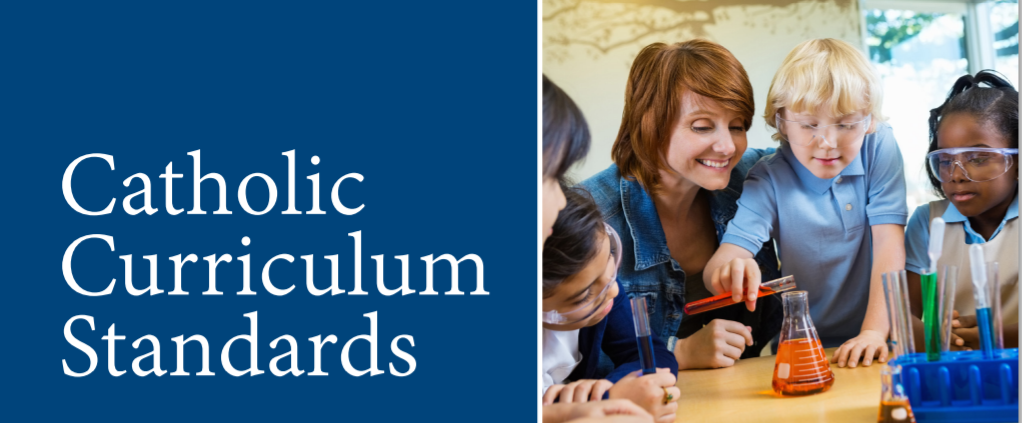
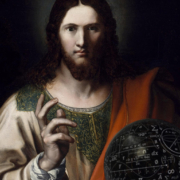
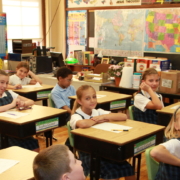 St. Agnes School, St. Paul, MN
St. Agnes School, St. Paul, MN